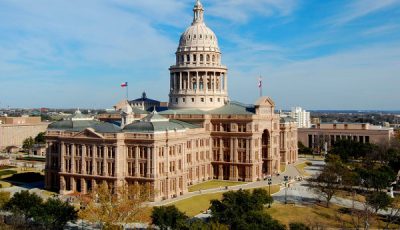Anti-Porn Bills Die in Congress
 The 117th Congress of the United States of America was sworn in on Sunday, January 3, 2021, pending a few disputed results and the winners of Georgia’s runoff Senate elections. Along with unprecedented gender and racial diversity, the 117th congress also brings a sigh of relief for the adult entertainment industry. That’s because two major anti-porn bills died along with the previous congress, where they’d been introduced.
The 117th Congress of the United States of America was sworn in on Sunday, January 3, 2021, pending a few disputed results and the winners of Georgia’s runoff Senate elections. Along with unprecedented gender and racial diversity, the 117th congress also brings a sigh of relief for the adult entertainment industry. That’s because two major anti-porn bills died along with the previous congress, where they’d been introduced.
The EARN IT Act (Eliminating Abusive and Rampant Neglect of Interactive Technologies Act of 2020) was introduced to the Senate by Lindsey Graham (R-South Carolina) and Richard Blumenthal (D-Connecticut). On July 2, 2020, it passed the Judiciary Committee with a unanimous, bipartisan vote and was sent on to the Senate floor for a vote. But the vote never came.
And it’s a good thing for porn makers that it didn’t. The EARN IT Act would have sought to establish a federal commission to create policies that tech companies must follow in order to “fight child pornography.” Online platforms found to be in violation of those policies would stand to lose the protection of Section 230 of the Communications Decency Act, which currently protects them from liability for user-created content. While the act did virtually nothing to protect children from being victimized by criminals, it would have effectively coerced platforms to censor user content and likely compromised user privacy.
And then there was SISEA, the “Stop Internet Sexual Exploitation Act,” which has been called the “anti-porn bill” by the sex work community since Senators Ben Sasse (R-Nebraska) and Jeff Merkley (D-Oregon) introduced it to the Senate in the wake of Ben Kristof’s New York Times column on Pornhub. This piece of bipartisan legislation sought to “prevent the uploading of pornographic images to online platforms without the consent of the individuals in the images”—a noble goal. But in order to effect that change, it would have demanded sweeping changes to the way that adult content is uploaded to and handled online. The changes it proposed, said the Free Speech Coalition at the time, were “a dangerous affront to sexual speech, devastating to sex workers, and redundant to existing legislation.”
The bill stood little chance of passing committee, much less clearing the Senate and the House due to its blatantly unconstitutional attempt to treat pornography differently from other expression—a move that attorney Lawrence Walters told YNOT would never fly in the US. “The Supreme Court has made clear that content-based restrictions are presumed unconstitutional and are extremely difficult for the government to defend under the applicable strict scrutiny test,” said Walters.
Both of these bills may be reintroduced to the 117th Congress, but they will have to start over from the beginning—passing committee, going to a floor vote, repeating the process in the House of Representatives, and then making their ways to the president’s desk. And if that happens, the desk in question will be Joe Biden’s. And, while Biden hasn’t made his stance on smut much of a campaign priority, Democrats have historically been more lenient toward Constitutionally protected free speech than their Republican counterparts.
The Adult Performers Artists Guild (APAG), which had spearheaded a #STOPSISEA Twitter campaign, tweeted on January 5, “As we were all hoping, S. 5054 (116th): aka #SISEA has died in committee for failing to receive any votes…This bill was introduced on December 17, 2020, in the previous session of Congress, but it did not receive a vote!” The organization vowed to keep appointments with lawmakers anyway, “to discuss concerns and work to prevent similar legislation from being re-introduced this year!”
The so-called War on Porn will, of course, soldier on in 2021. Anti-porn politicians aren’t likely to give up their favorite catch-all for what they think is immoral behavior. But it’s nice to have a reprieve from the legislative branch of this particular fight, even if it’s only for a little while.













